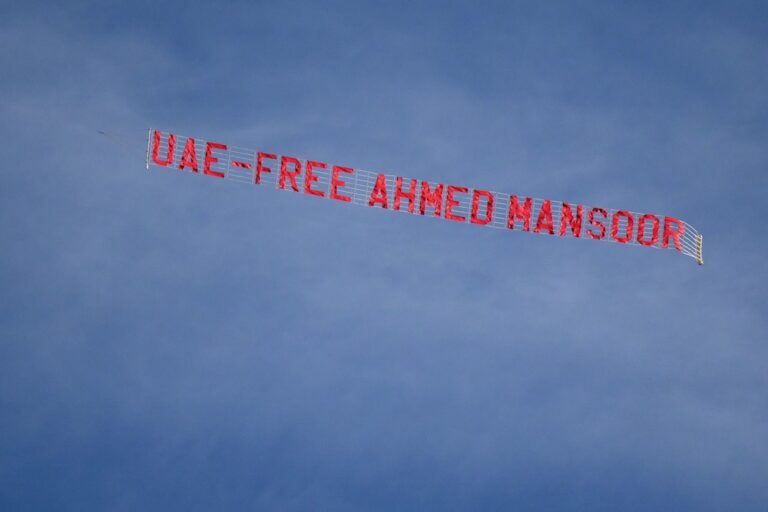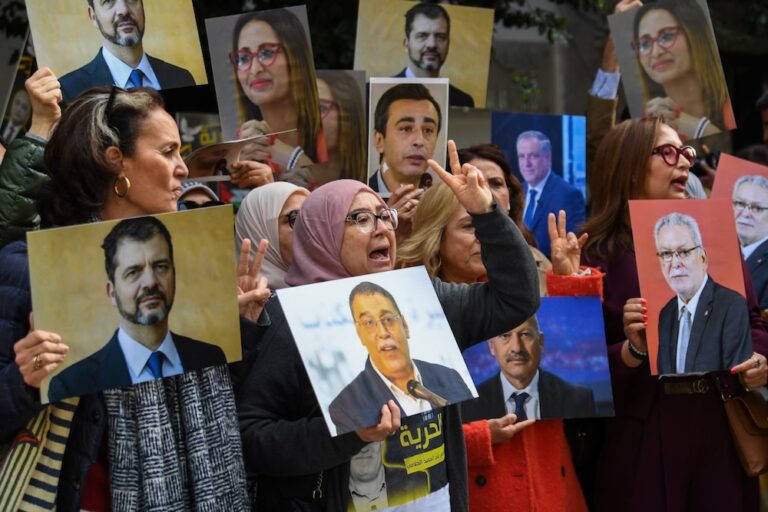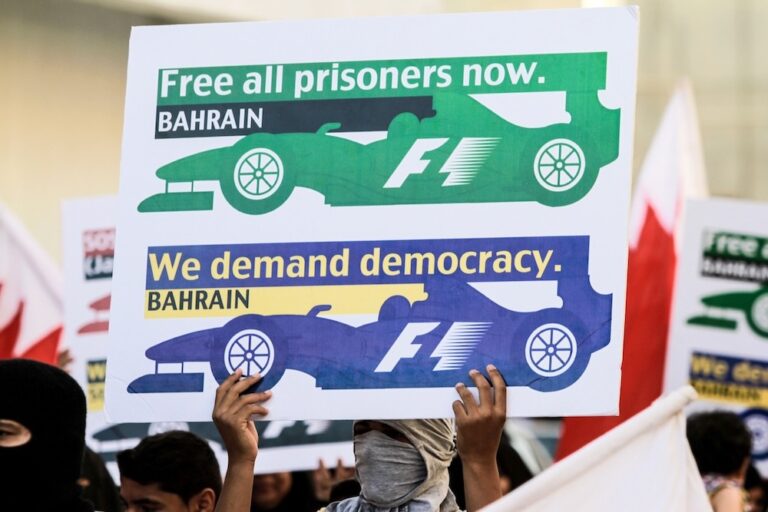While Bahrain uses mainly technical means to obstruct media freedom, Syrian authorities continue to resort to violence and reporters covering pro-democracy demonstrations in Morocco have been roughed up.
(RSF/IFEX) – 4 August 2011 – The following is an RSF round-up of recent developments in Bahrain, Syria, and Morocco:
BAHRAIN
Lualua TV, a satellite TV station launched by 15 members of the Bahraini opposition on 17 July in London, has been jammed since its debut, despite changing frequency regularly. According to Eutelsat, the jamming is being orchestrated from Bahrain. Lualua TV wanted to broadcast from Bahrain but it was repeatedly denied permission. It is still managing to broadcast on the Hotbird satellite.
In a 24 July press release, the head of Lualua TV said: “A lot of hard work has gone into this channel and we are extremely disappointed that we have had trouble broadcasting our message. It comes as no surprise that the source of the jamming is Bahrain. It is as we had expected. We have followed all regulations in the creation of this station and we will not allow this setback to stop us from broadcasting permanently. We are hoping that the interference has now ended, but if it returns we will just have to find other ways to reinforce our message.”
(. . .)
SYRIA
Firas Al-Karad, a blogger who was arrested and tortured in March, was arrested again in Deraa on 31 July.
The following people are still being detained:
– Mohamed Tahan Jamal, a member of the League of Arab Writers and the Union of Journalists and a signatory of the Aleppo Appeal for the Nation. He was arrested on 20 July.
– Abd Al-Majid Tamer and Mahmoud Asem Al-Mohamed, two freelance journalists working for Kurdish news websites who were arrested on 31 May.
– Omar Koush, who was arrested at Damascus international airport on 1 May as he returned from a conference in Turkey.
– Anas Al-Ma’arawi, a journalist, blogger and founder of the first Arab website specializing in the Android system, who was arrested in a Damascus suburb on 1 July.
– Manaf Al Zeitoun, who was arrested on 25 March. There has been no news of him since his arrest.
– Mohamed Nijati Tayara, a writer and member of the Human Rights League, who was arrested at a security checkpoint on 12 March and was initially accused of disseminating false information. A Homs criminal court dropped the charges after the second amnesty of 21 June. His case was then transferred to a Damascus appeal court which has yet to take a decision. His health deteriorated after he began a hunger strike with other detainees in protest against their detention and he has not had access to appropriate treatment. His is allowed to see his wife and lawyer once a week but no one else.
MOROCCO
The journalist Hassan Bourah was attacked in the southwestern city of Guelmim on the evening of 31 July. He was reportedly hit in the stomach and face, insulted and threatened, and his mobile phone and press card were confiscated. He said four men forced him into car and dumped him outside the city, far from the demonstrations he had been covering.
Khaled Nasser, 26, a blogger based in the southwestern city of Agadir, sustained a severe head injury while filming a demonstration on 17 July in support of the opposition 20 February Movement for his blogs and for the Agapress website. He is a member of the Association of Moroccan bloggers. A Nasser support page has been created on Facebook.
Mounir El-Kataoui, a reporter for the Moroccan daily Al-Massae, was also attacked while photographing and filming a demonstration in Casablanca on 29 May. Despite wearing a vest marked “Press”, he was struck hard in the face and lost consciousness. He had to be taken to hospital. The police broke his camera and his glasses.
Mohamed Benba, a 17-year-old blogger based in Agadir, and online journalist Bachir Lamti, 28, who edits the Sahara Press website, were victims of intimidation attempts. Benba was threatened on 10 July following a march in Agadir by the 20 February Movement. Members of the Directorate for Territorial Surveillance, an intelligence agency, went to his school to give him a warning after he posted videos of the march on YouTube. Lamti was hit and insulted by a police officer while trying to film a demonstration in Guelmim on 17 July.
(. . .)


